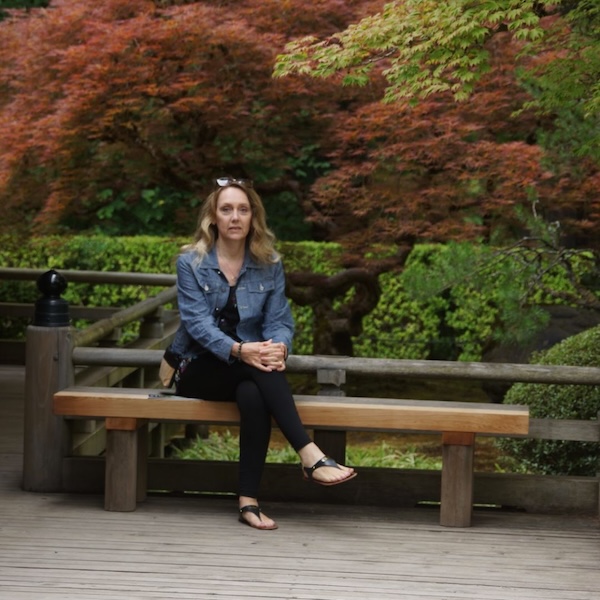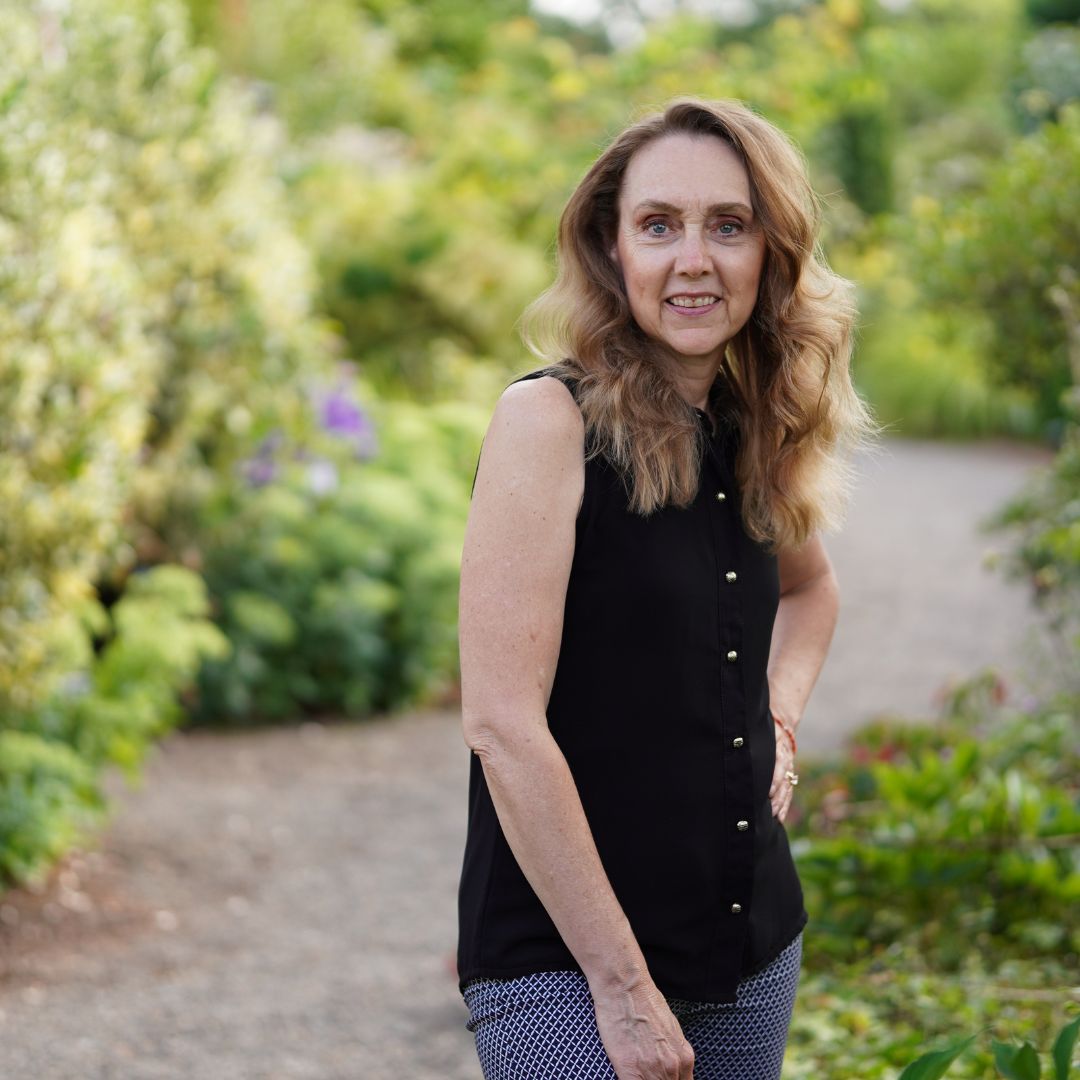
I had an “a-ha” moment the other day.
Looking back, I wonder how I didn’t see it clearly before.
I’ve always looked at life as an endpoint. I realize a lot of that comes from my family.
Heart disease runs in my family. My dad died of a massive heart attack at 54. That perspective has fixated me on a lifespan cut short.
But I never thought much about healthspan vs lifespan, even though it’s been a big part of my life since I lost my dad at 54.
Two years after my dad died, my mom had a massive stroke … at 54.
She recovered. But for the past 28 years, she’s been on a slippery slope to poor health. Today at 82, she’s living out life in assisted living.
What about healthspan vs lifespan?
Lifespan is easy to understand. It’s the amount of time we have on planet Earth in our human form. Right now, lifespan sits right around 82 years of age. On average, we can expect to live to about 82 years old.
Healthspan is a bit different. Healthspan is the period of life when one is healthy. Healthy can mean different things to different people. But I define it as being free from serious disease, able to live life as you desire.
Healthspan is under attack. You don’t have to look very far to discover lots of chronic disease has filtered into our lives. Heart disease, cancer, stroke, diabetes, Alzheimer’s disease, and immune problems are all decreasing health and requiring us to live with chronic ailments.
We’re doing very little about it.
The WHO has developed an indicator – HALE – to approximate the average age of serious disease and craft an average healthspan number. The current age is 66.2.
That’s around 16 years of failing health, on average, per person. Or 20 percent of life!
The science of de-aging
So where do we go to recover healthspan? Who is focusing on it? What does it mean?
You can’t go very far into this territory without running into a small group trying to “de-age.” And they do some pretty crazy things:
Receiving blood transfusions from a 17-year-old son.
Wearing red-light caps while sleeping.
Eating one meal a day.
Hyperbaric oxygen therapy, ice baths, implant devices – there really is no limit to the tactics they try to reverse aging.
I read this and think: Not for me.
You too?
For me, my goal is to reduce the time between decline and death.
16 years – 20 percent of life – is way too long for me.
Not when there are things you can do to shorten that curve, decreasing the number exponentially.
And really, it’s not as tricky as you’d think.
Many physicians talk about this regularly. Yet, these physicians are a little bit outside of the norm. They are not sucked in by the Big Pharma, Big Food, Big Med system.
Instead, they will tell you it’s all about fundamentals. Getting back to basics.
A 5 pillar approach
I talk about it a lot here on my blog. The faster you realize the fundamentals change everything, the sooner you’ll start seeing results. (You have taken my 7-day fundamental class, haven’t you? It’s free …)
The fundamental approach is based on five pillars:
1 – Nutrition
2 – Exercise
3 – Sleep
4 – Emotional health
5 – Supplements
1 – Nutrition
Food – real food – is how you ensure proper nutrition.
We’ve tried to make things cheaper/faster/easier over the past century.
It’s failed.
Fundamental nutrition means getting back to high-quality, whole-food, plant-based food supply. It’s worked for centuries, and that won’t ever change. No matter how much we try to cook up in the lab.
2 – Exercise
You’ve got to move your body. You can’t sit on the couch or behind a computer and expect results.
The good news is that it doesn’t take much. Set small goals. You’ll feel better and quickly want more.
I work for 10,000 steps each day. I walk in the morning and late afternoon. I walk regularly around my house doing chores between work sessions.
I sign up for exercise classes. I have simple weights near my desk.
I focus on movement, because I know it’s fundamental to my success.
3 – Sleep
Many years ago, I tried to avoid sleep. I even stated a time or two that I would “sleep when I was dead.” Living on four hours or less became my norm.
It didn’t work. That catches up to you eventually.
I don’t believe Big Pharma is the solution. Instead, I make my bedroom a sanctuary.
No phones. No TV. No digital of any kind.
Soft light. Simple decor. A dark, quiet environment.
Comfy sheets, blankets, and pillows. It’s worth the investment.
Then, I create rituals as I prepare for bed. Reading time. Lights out at a specific time.
Did this ritual come quickly? No. But prioritizing it made it so.
4 – Emotional health
What good is good health if mental health doesn’t support it?
In this crazy, chaotic world, mental health is under attack.
It’s up to you to build a foundational approach to taking it back.
Fundamentals always involve rituals. Meditation. Yoga. Journaling. Reading. Relationships.
You only get back what you put forward.
I stress this all the time. It’s something you need to work on constantly. It doesn’t come easily. It changes day by day.
But the funny thing is that after years of work in this area, I’ve noticed how much quicker I recover from life’s hurdles. We all experience the shocks of the world coming down on us. It’s the approach to moving forward that matters most.
5 – Supplements
I know – supplements have their own category?
Yes. I’m talking about more than a daily multivitamin.
Fundamentals are under attack. The food supply. Our healthcare system. Our approach to daily living. The soil our food grows in. The air we breathe.
You can’t stay in optimal condition without work. And because the systems are designed to keep you in the system, it’s up to you to find better approaches.
That involves research. It consists in coming up with your own lifeplan. And it is optimized through trial and error.
If you’re not looking, healthspan doesn’t matter – it can’t, you won’t know what to do.
Healthspan only applies when you start asking questions about everything in your life.
Is this the best strategy?
Should I take this?
Should I trust this?
Is there a better solution?
How can I get better?
What can I do differently?
Each question will lead you to something new, useful you can bring into your life.
This is where real change happens.
One question at a time.
Question: What questions are you asking to increase your healthspan?
To your wellth,
Lori


+ show Comments
- Hide Comments
add a comment